Africa is a young continent and getting younger by the year. By 2050, half of all the people in Africa will be under the age of 25 and it will be home to a full 25 percent of all the world’s working-age population.
But this tremendous asset—a continent full of energetic, bright, and creative young people—will only be the “demographic dividend” that the African Union aspires to if countries invest in the education and skills of all their children and youth. This task is much more difficult today given the economic downturn on the continent in the wake of COVID-19.
Luckily, there are experiments taking place in African education systems that started before the pandemic hit that can provide inspiration for today’s challenges. For example, Ghana’s initiative to radically expand access to senior secondary schooling, especially to the highest quality schools in the country, can shed light on how to increase inclusion without investing in the costly endeavor of building new schools. As countries in the region struggle to address the impacts from the COVID-19 pandemic—from public health needs to rising poverty to increasing social instability—finding more cost-efficient ways to help the regions’ aspiring youth enter or finish secondary school is important in the short and long term.
But what has been Ghana’s approach and how was it done?
A Leapfrog experiment: Rapidly expanding access to top quality schools
In 2017, Ghana started nationwide implementation of its Free Senior High School policy. The initiative was spearheaded by President Nana Addo Akuffo who was deeply concerned about the one-third of students that the government estimated passed the exam to attend senior secondary school but could not afford to attend. In a recent conversation, Dr. Matthew Prempeh, Ghana’s minister of education, describes the process of finding a pathway to deliver on the president’s promise of free senior secondary school for all youth.
You don’t develop a country based off only elitism. You develop a country where the masses of the populations are trained and educated to a level that they can all lead productive lives in the country.
“When I came into my position, I had seven months to figure out how to deliver free senior secondary education before the start of the next school year,” says Dr. Prempeh. To access senior secondary school in Ghana, students need to pass the Basic Certificate of Education Examination (BECE) and choose a school they wish to attend, which could be anywhere in the country. With 85 percent of children enrolled in the nine years of required basic education that runs through junior secondary school, the prospect of free senior secondary was hugely popular with the country’s youth.
The largest problem Minister Prempeh faced in realizing this vision was that there simply were not enough seats in the schools that students wanted to attend, and it would take too long to build the infrastructure needed. While Ghana currently has 700 public senior secondary schools, 55 are widely recognized as the top schools in the country. These are the schools from which top universities fill their ranks and businesses and government agencies fill their leadership positions.
In the first year of free secondary education, 362,000 qualified students were enrolled, which included 80,000 more children who otherwise could not have afforded it. In the second year, over 490,000 students passed their BECE exams, but there were only 290,000 classroom seats. What was to be done with the extra 182,000 students? One option was simply to change the rules mid-stream and only accept those students with the highest exam grades to match the number of seats available. Advocates of this approach argued that it would give the government time to build classrooms, and over time all of Ghana’s young people who passed the BECE exam could enroll.
This approach would likely have been acceptable to the families of the top-scoring students, but these students would most likely have come from the wealthy families and private schools. But what about the poor student from a rural area whose family sacrificed everything to help her pass the BECE? “You don’t develop a country based off only elitism. You develop a country where the masses of the populations are trained and educated to a level that they can all lead productive lives in the country,” says Minister Prempeh. With this commitment to equity, the Ministry took up the challenge of finding a way for all eligible students to attend senior secondary. “I wanted to embrace the leapfrog mentality and see how we could tackle access and quality at the same time. It is not so complex. We just had to know how to count and measure, and if we did that correctly, we could get it right,” says the Minister.
The solution? Year-round schooling for schools with fewer seats than students interested in attending. Inspired by the experience of his deputy minister, Dr. Yaw Osei Adutwum, who earlier in his career had led year-round schooling initiatives in the U.S., Minister Prempeh and his team got to work measuring and counting. For the most popular—and highest quality—schools in the country, students were assigned to either the “green” or “gold” track and alternated attending school 11 weeks at a time with vacation breaks in between. This way, by adjusting the length of the school day and the school calendar and even increasing teaching hours from 1,080 to 1,140 per year, Ghana plunged into free universal secondary education. Today, the ministry is beginning to build more schools to ease congestion and ultimately sees year-round school as a temporary measure.
The rollout of year-round schooling was less than smooth. Parents and students alike expressed a range of concerns: caring for children during the many school breaks, frustration with siblings in different tracks—making family calendars difficult—and concern about how the frequent breaks would affect learning. Admitting that there could have been better communication to families and students, Minister Prempeh defends the decision nonetheless: “Whose child was supposed to wait to enroll in top senior secondary schools?” He argues that most of the concerns came from families whose children traditionally attended the top schools.
The need to continue investing in young people
While the verdict is still out on how this has impacted student learning, the ministry has partnered with ID Insights and others to document and evaluate the program, and this innovative approach is likely to be a good one with lessons for today when all education systems are struggling to do more with less. In addition, any strategy that provides for more inclusive and equitable access to education across elite and marginalized groups, especially at the secondary level, helps fend off social unrest. In fact, researchers argue that equitably expanding access to educational opportunities can “breed peace” and in some cases reduce the risk of conflict by two-thirds. This is something many leaders across the continent who are worried today about mounting instability, especially among frustrated youth, would do well to take note.
According to Minister Prempeh, Ghana’s top senior secondary schools, many of which are long-standing boarding schools, have long played a special role in helping build social cohesion in the country. Over the decades, these schools became the place where the best and brightest of Ghana—from all over the country and from different tribes and traditions—would come and spend their formative years. Citing his own experience as a student, Minister Prempeh describes the strong bonds developed in these schools, “We feel a strong affiliation to our school that rises above tribal differences and we learned to work together and contribute to Ghana the country.” Perhaps this has played a crucial role in Ghana’s long record of peace and stability across over 100 tribes while each of its neighboring countries has struggled with civil war.
Indeed, now is not the time to back off from investing in Africa’s young people. “The current president believes that it is not resources that make a nation but human beings,” says Minister Prempeh. Ghana’s youth would agree with him.
The Brookings Institution is committed to quality, independence, and impact.
We are supported by a diverse array of funders. In line with our values and policies, each Brookings publication represents the sole views of its author(s).

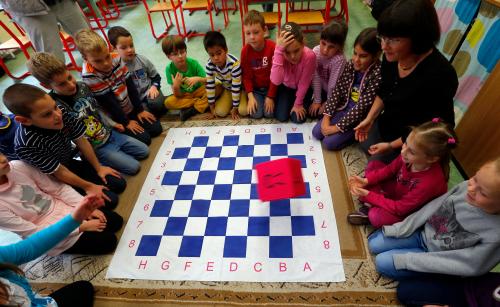
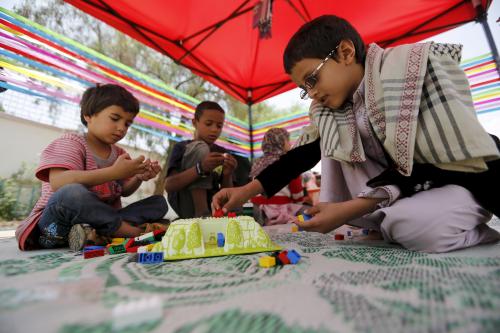
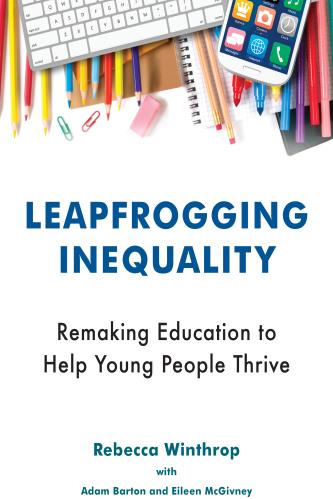
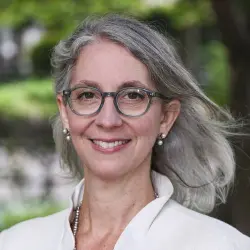
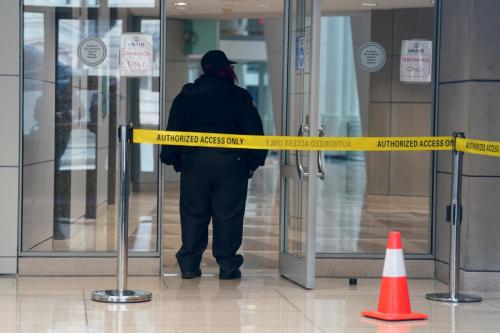
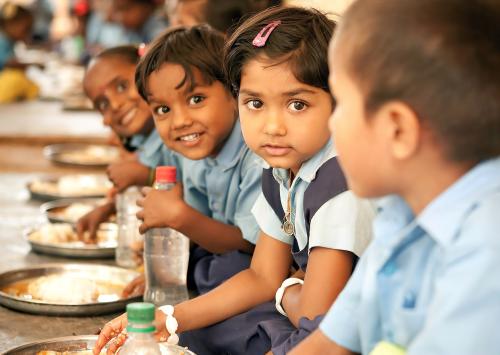
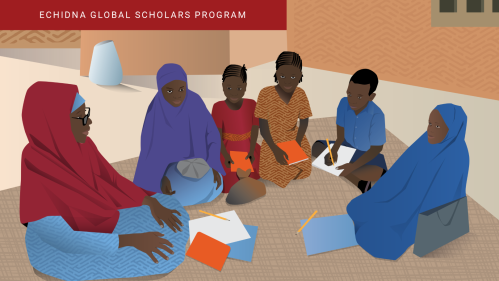
Commentary
Ghana’s leapfrog experiment: Free senior secondary school for all youth
July 14, 2020